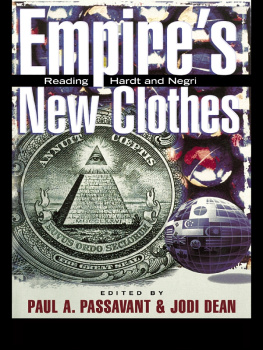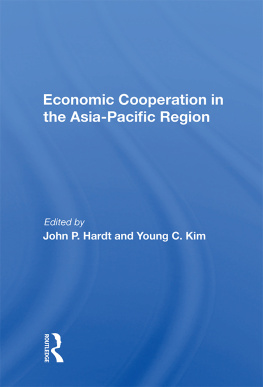Hardt Michael - Assembly
Here you can read online Hardt Michael - Assembly full text of the book (entire story) in english for free. Download pdf and epub, get meaning, cover and reviews about this ebook. City: New York, year: 2017, publisher: Oxford University Press, genre: Politics. Description of the work, (preface) as well as reviews are available. Best literature library LitArk.com created for fans of good reading and offers a wide selection of genres:
Romance novel
Science fiction
Adventure
Detective
Science
History
Home and family
Prose
Art
Politics
Computer
Non-fiction
Religion
Business
Children
Humor
Choose a favorite category and find really read worthwhile books. Enjoy immersion in the world of imagination, feel the emotions of the characters or learn something new for yourself, make an fascinating discovery.
- Book:Assembly
- Author:
- Publisher:Oxford University Press
- Genre:
- Year:2017
- City:New York
- Rating:3 / 5
- Favourites:Add to favourites
- Your mark:
- 60
- 1
- 2
- 3
- 4
- 5
Assembly: summary, description and annotation
We offer to read an annotation, description, summary or preface (depends on what the author of the book "Assembly" wrote himself). If you haven't found the necessary information about the book — write in the comments, we will try to find it.
Assembly — read online for free the complete book (whole text) full work
Below is the text of the book, divided by pages. System saving the place of the last page read, allows you to conveniently read the book "Assembly" online for free, without having to search again every time where you left off. Put a bookmark, and you can go to the page where you finished reading at any time.
Font size:
Interval:
Bookmark:

Series editor: Ruth OBrien,
The Graduate Center,
City University of New York

Oxford University Press is a department of the University of Oxford. It furthers the Universitys objective of excellence in research, scholarship, and education by publishing worldwide. Oxford is a registered trade mark of Oxford University Press in the UK and certain other countries.
Published in the United States of America by Oxford University Press 198 Madison Avenue, New York, NY 10016, United States of America.
Michael Hardt and Antonio Negri 2017
All rights reserved. No part of this publication may be reproduced, stored in a retrieval system, or transmitted, in any form or by any means, without the prior permission in writing of Oxford University Press, or as expressly permitted by law, by license, or under terms agreed with the appropriate reproduction rights organization. Inquiries concerning reproduction outside the scope of the above should be sent to the Rights Department, Oxford University Press, at the address above.
You must not circulate this work in any other form and you must impose this same condition on any acquirer.
Library of Congress Cataloging-in-Publication Data
Names: Hardt, Michael, 1960 author. | Negri, Antonio, 1933 author.
Title: Assembly / Michael Hardt & Antonio Negri.
Description: New York : Oxford University Press, 2017. |
Includes bibliographical references and index.
Identifiers: LCCN 2016052875| ISBN 9780190677961 (hardback : alk. paper) |
ISBN 9780190677985 (epub)
Subjects: LCSH: Representative government and representation. | Democracy. |
Social movementsPolitical aspects. | Power (Social sciences)
Classification: LCC JF1051 .H37 2017 | DDC 321.8dc23 LC record available at
https://lccn.loc.gov/2016052875
1 3 5 7 9 8 6 4 2
Printed by Sheridan Books, Inc., United States of America
The lines from Natural Resources copyright 2016, 2013 by the Adrienne Rich Literary Trust. Copyright 1978 by W.W. Norton & Company, Inc., from COLLECTED POEMS: 19502012 by Adrienne Rich. Used by permission of W.W. Norton & Company, Inc.
Keeping faith with people who, in the teeth of relentless oppression, spontaneously resist, is all right on the night. But it is not enough when the next day dawns, since all it means is that, sooner or later, the frontline troops, with their superior weapons and sophisticated responses, will corner some of our young people on a dark night along one of these walkways and take their revenge.
Stuart Hall , Cold Comfort Farm
To know the allure of the commons is to know that one is not simply commencing something but instead fortunate enough to be participating in something vaster, partial, incomplete, and ever expanding.
Jos Muoz , The Brown Commons
To your most excellent Majesty
In olden times authors were proud of the privilege to dedicate their works to Majestya noble custom, which we should revive. For whether we recognize it or not, Magnificence is all around us. We do not mean the remnants of the royal lines that grow more ridiculous by the day, and certainly not the pompous politicians and captains of finance, most of whom should be brought up on criminal charges. We are more sympathetic to the tradition of Thoreau, Emerson, and Whitman, who revere the glory of the mountains and mystery of the forestsbut that is not what we mean either. We dedicate this book instead to those who, against all odds, continue to fight for freedom, those who suffer defeat only to stand up again, indefatigable, to combat the forces of domination. Yours is true Majesty.
following Melville, following Machiavelli
Here poetry equals insurrection.
Aim Csaire
The script is by now familiar: inspiring social movements rise up against injustice and domination, briefly grab global headlines, and then fade from view. Even when they topple individual authoritarian leaders they have been unable thus far to create new, durable alternatives. Save few exceptions, these movements either have abandoned their radical aspirations and become players in the existing systems or have been defeated by ferocious repression. Why have the movements, which address the needs and desires of so many, not been able to achieve lasting change and create a new, more democratic and just society?
This question becomes all the more urgent as right-wing political forces rise and take power in countries throughout the world, suspending normal legal procedures in order to attack political opponents, undermining the independence of the judiciary and the press, operating extensive surveillance operations, creating an atmosphere of fear among various subordinated populations, posing notions of racial or religious purity as conditions for social belonging, threatening migrants with mass expulsion, and much more. People will protest the actions of these governments, and they are right to do so. But protest is not enough. Social movements also have to enact a lasting social transformation.
Today we are living in a phase of transition, which requires questioning some of our basic political assumptions. Rather than asking only how to take power we must also ask what kind of power we want and, perhaps more important, who we want to become. Everything turns, as Hegel says, on grasping and expressing the True not only as Substance, but equally as Subject. We must train our eyes to recognize how the movements have the potential to redefine fundamental social relations so that they strive not to take power as it is but to take power differently, to achieve a fundamentally new, democratic society and, crucially, to produce new subjectivities.
The most powerful social movements today treat leadership as a dirty wordand for many good reasons. For more than a half century activists have rightly criticized how centralized, vertical forms of organization, including charismatic figures, leadership councils, party structures, and bureaucratic institutions, become fetters to the development of democracy and the full participation of all in political life. Gone are the days, on the one hand, when a political vanguard could successfully take power in the name of the masses; the claims of political realism and the presumed effectiveness of such centralized leadership have proved completely illusory. And yet, on the other, it is a terrible mistake to translate valid critiques of leadership into a refusal of sustained political organization and institution, to banish verticality only to make a fetish of horizontality and ignore the need for durable social structures. Leaderless movements must organize the production of subjectivity necessary to create lasting social relations.
Instead of dismissing leadership completely we should start by individuating its core political functions and then invent new mechanisms and practices for fulfilling them. (Whether this still is called leadership matters little.) Two key leadership functions are decision-making and assembly. To guard against the cacophony of individual voices and the paralysis of the political process, the thinking goes, leaders must be able to bring people together in a coherent whole and make the difficult choices necessary to sustain the movement and ultimately to transform society. The fact that leadership is defined by a decision-making capacity presents a paradox for modern conceptions of democracy: leaders make decisions at a distance, in relative solitude, but those decisions must in some sense be connected to the multitude and represent its will and desires. This tension or contradiction gives rise to a series of anomalies of modern democratic thought. The ability of leaders to assemble the multitude demonstrates this same tension. They must be political entrepreneurs who gather people, create new social combinations, and discipline them to cooperate with one another. Those who assemble people in this way, however, stand apart from the assembly itself, inevitably creating a dynamic between leaders and followers, rulers and ruled. Democratic leadership ultimately appears as an oxymoron.
Font size:
Interval:
Bookmark:
Similar books «Assembly»
Look at similar books to Assembly. We have selected literature similar in name and meaning in the hope of providing readers with more options to find new, interesting, not yet read works.
Discussion, reviews of the book Assembly and just readers' own opinions. Leave your comments, write what you think about the work, its meaning or the main characters. Specify what exactly you liked and what you didn't like, and why you think so.







